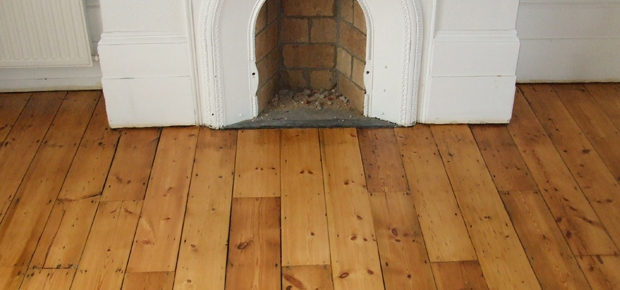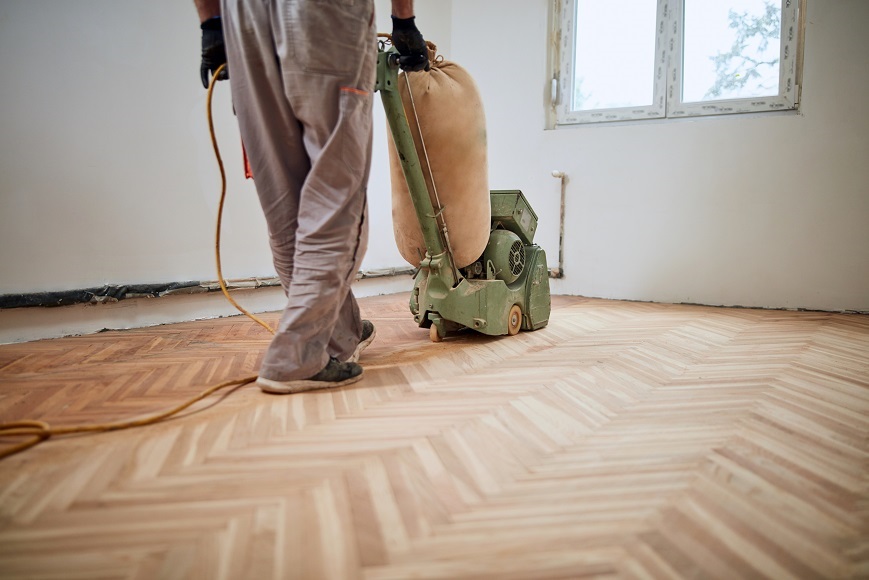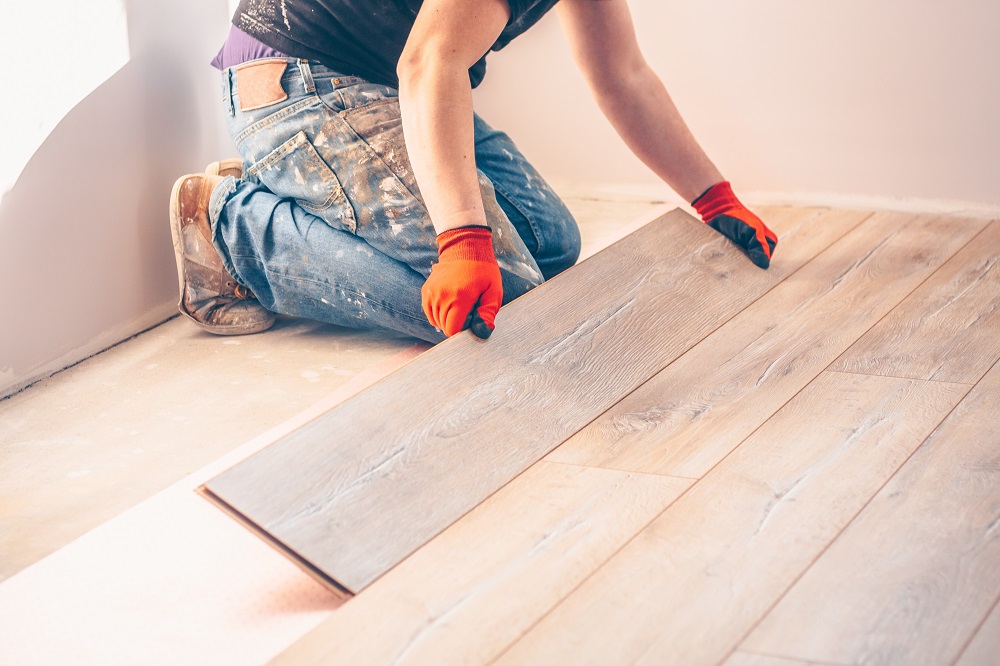Having a new hardwood floor installed or upgrading your existing hardwood floor is a big investment. Done right, it is an investment you will enjoy for a long time. What’s more, it also increases the resale value of your home. With such a major investment to consider, it is imperative that you spend some time carefully evaluating the flooring company that will be responsible for your new floors.
Things to Look For in a Floor Sanding Company
- Choose a floor sanding company with an online presence In today’s internet-driven world, every serious business has an online presence. A floor sanding company without one is a major red flag. If you search for your preferred contractor online, you should be able to find something, such as a company website or online reviews through a business experience-related platform.
A floor sanding company’s website will have pictures of the company’s work and would also contain reviews from their past clients. Be sure to check third-party review sites as well in order to get a proper picture of the floor sanding company’s competence.
- Experience The experience of the floor sanding company you choose will influence the final look of your floors. Choose a company that will be able to handle all types of floor conditions. A contractor, when you really consider it, is a craftsman. Therefore, the more experience he has, the greater his skill set should be.
- Are They Fully Insured? You can get this information before taking things further with a floor sanding company over the phone or via its official website. If they are not fully insured, we recommend choosing some other contractor; it is time to move on, try out a different company. You need to ensure your home is in safe hands throughout the floor restoration/installation process. If your flooring contractor is not insured, you will be held liable for repairs if there is damage to your property.
- Customer Reviews Always check out the reviews from a flooring company’s customers so that you can measure the quality of the sanding services provided. A great place to start is the company website. Testimonials are always available on the websites of reputable floor restoration companies. Alternatively, you can ask a member of the staff to provide you with feedback and comments from their customers on finished projects.
- Price Unless you have an upcoming event, getting more than one quote is the smartest thing you can do. Although this will take longer, what’s the rush? Getting hardwood floors installed is a huge investment. Making an informed decision over such a long-term investment should be the standard. Floor sanding companies have various service offerings and prices for this offer. Some will be more thorough, some not as efficient, and others just too pricey. Although it might seem like a good idea to go for the quote in the middle range because of your budget, you should consider what you are willing to pay to feel satisfied each time you look at your new floors. Regret will be too costly, regardless of how much you “saved” by choosing the cheaper option.
Questions to Ask Your Potential Floor Sanding Contractor
What Type of Warranty Do You Offer? Like we said earlier, hardwood floors are major investments; you need to choose a contractor that has full coverage. At Brighton Floor Sanding, our warranty is for the period of one year for both our workmanship and the materials we supply. We can make a copy of this warranty for you upon request.
How will you manage the dust? Do you clean up? We recommend asking this question upfront as there are many ways to contain the dust and mess, and not all of them are efficient. Ensure your flooring contractor will cover the areas not being sanded; make sure they protect chandeliers, drapery, and appliances. They should also offer to clean up at the end.
What type of finish will be applied? Most contractors have their preferred type of finish, so this is a great question to ask. Ensure your floor will be adequately protected from the kind of wear it will receive.
Do you do the job yourself or subcontract? If the company you choose is set up more like a brokerage firm for subcontractors than a team of quality wood flooring specialists who handle the job themselves, it could become a major problem down the line. Your first choice should be a contractor who uses in-house certified employees and does not delegate the project to subcontractors who may not be qualified.
Do you acclimate the flooring? Acclimation is a very important step in the hardwood floor installation process because it reduces the risk of your floor gapping or suffering from other problems at a later time. The flooring company you choose should not be one that delivers and installs flooring the same day; this will void your flooring warranty. A good floor sanding contractor adheres strictly to manufacturer warranty guidelines, and a lot of them recommend a 48-72 hours acclimation period before installation.
Do you charge for an in-home estimate, and is this fee part of the cost of purchase? An in-home estimate is essential for determining what type of flooring you can have installed and the total size you would need to purchase. Some installers/dealers offer this service for free while others charge a small fee and then subtract it from the total cost of the job.
What Type of Hardwood Flooring Is Best for My Home? Even if you’ve already settled on a type of hardwood flooring, asking for the expert advice of an experienced contractor is a great way to ensure that your flooring choice will work well with your style and the humidity levels in your home.
How long will the job take?
The amount of time the project will take is important information to have because it will allow you to set reasonable expectations for the timeline of the project. With this information, you can also make any necessary plans on your end. Ask how the project will progress and get information on lead times (delivery times) and the duration of the acclimation process. Will they take off some days? Some contractors take days off to let the product dry, and some do not work on certain days of the week.
What Technical Training Have You Received? The flooring contractor you choose should have a lot of experience and technical training. Does your contractor attend training sessions, conventions, and other relevant educational opportunities in the flooring industry? If they do, this means they will use the latest techniques and equipment to give you the best results.
How many projects are you currently working on? The answer to this question is kind of a double-edged sword. On one hand, you want them to be busy; otherwise, you might wonder why no one is hiring them. On the other hand, if your contractor has too many projects, the quality of your renovations may be affected (negatively).
Contractors who offer prices over the phone should not be trusted.
Be wary of contractors who offer a price over the phone. A good contractor knows to conduct an on-site survey first to ensure that he/she gets the right information, such as the type of wood being used, any potential asbestos risks, and any other specifics that need to be discussed before providing a quote. A good contractor will also be able to provide feedback on suggested finishes based on the light in the room and the amount of wear and tear the wood floor has been subjected to.
On a Final Note Be completely aware of what the sanding and refinishing of your floors will entail. This includes overall cost, the duration of the project, the materials to be used, and all the milestones leading up to completion. It is also a good idea to compare multiple contractors before settling on one. Examine a portfolio of each contractor’s work and ensure that anyone you hire is fully insured and licensed. Make sure that every important detail is outlined in your contract. Good planning and communication will make the entire process smooth and pleasant for you while helping you avoid any nasty surprises.











